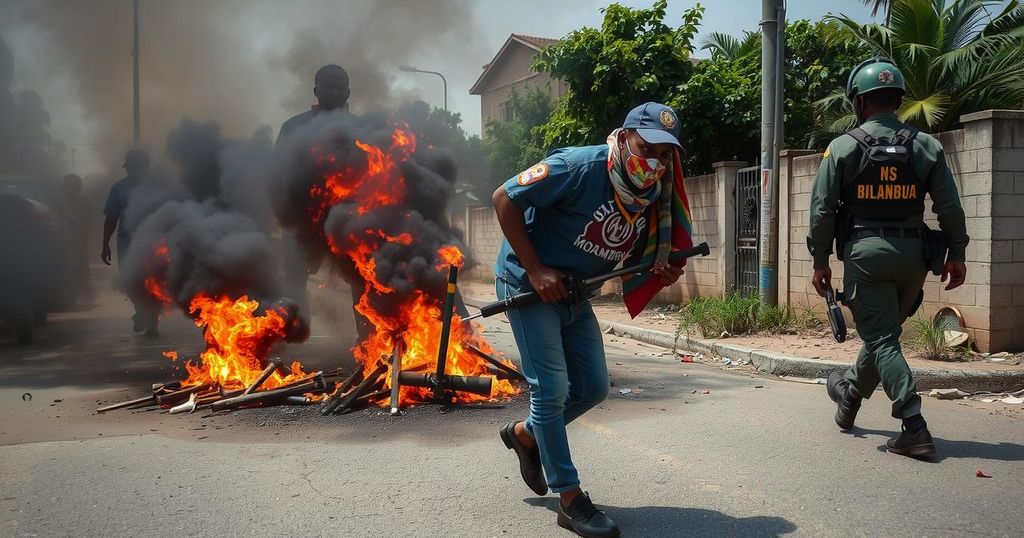Mozambique has experienced intense post-election violence, leading to 125 deaths within three days. Opposition protests erupted following the ruling Frelimo party’s announcement of victory, leading to clashes and significant property damage. Human rights organizations report over 4,000 arrests since October and rising tensions as accusations of electoral fraud mount against the government. This situation continues to impact public safety and political stability in the country.
Tensions have escalated in Mozambique following the recent presidential election results, leading to violence that has claimed approximately 125 lives within three days, as reported by the NGO Plataforma Decide. The unrest erupted following the announcement that the ruling Frelimo party, led by Daniel Chapo, won the elections with 65.17 percent of the votes, despite international concerns regarding electoral irregularities. As protests intensified, clashes between demonstrators and police resulted in widespread destruction, including ransacked supermarkets and arson. A subsequent mass jailbreak near Maputo resulted in further casualties, contributing to fears of descending into chaos.
The NGO indicated that, in total, violence since the elections began has resulted in 252 deaths, with the most affected areas being around the capital, Maputo, and the northern provinces, including Nampula and Beira. Reports indicate that over 4,000 individuals have been arrested in relation to the protests, with 137 apprehensions occurring in the most recent three-day period. Opposition leader Venancio Mondlane, who remains in exile, has claimed that the elections were manipulated and has accused security forces of exacerbating the unrest to justify a state of emergency.
Despite some initial dismantling of barricades in Maputo, many remain, disrupting traffic and public transport, creating a tenuous situation as the government struggles to restore order amid cries of electoral fraud and rampant violence. The international community watches closely as the situation develops, raising concerns about the stability of Mozambique under the current ruling party.
Mozambique has a long history of political instability, and recent elections on October 9, 2023, have exacerbated existing tensions. The Frelimo party, in power since the country’s independence in 1975, faced allegations of electoral fraud, which fueled protests led by opposition groups. The responding violence has stirred fears of civil unrest, with NGOs actively documenting the death toll and imprisonments related to the protests. The political climate remains volatile, with significant implications for Mozambique’s future governance and public safety.
The violent aftermath of Mozambique’s recent presidential election highlights the deep-seated political divisions in the country. With 125 deaths reported over a mere three days, the scale of unrest suggests that the opposition’s claims of electoral fraud resonate with significant portions of the population. As the situation evolves, the international community’s response may shape future political dynamics, and authorities face the imperative of restoring order while addressing the legitimate grievances of the citizens.
Original Source: www.rfi.fr






